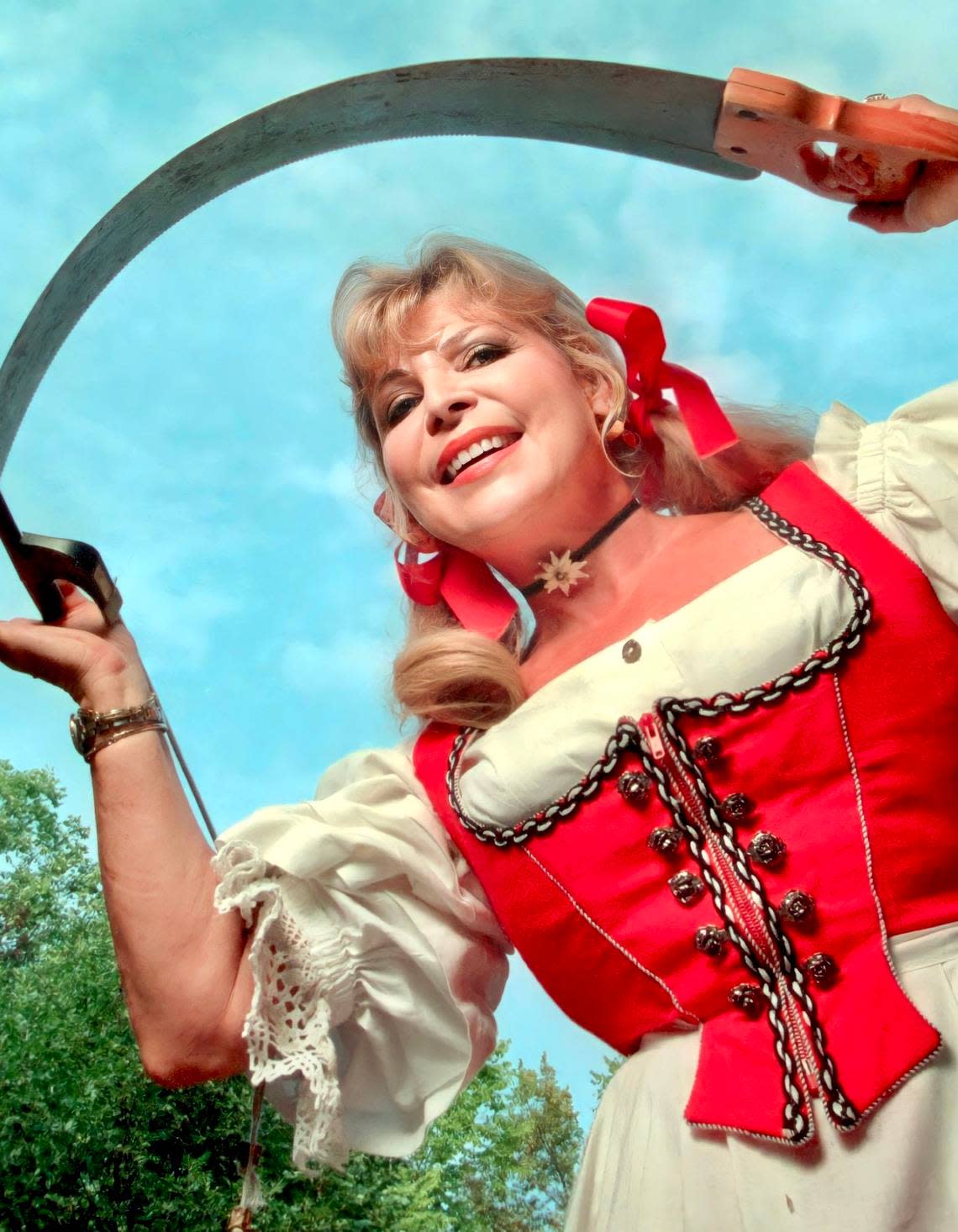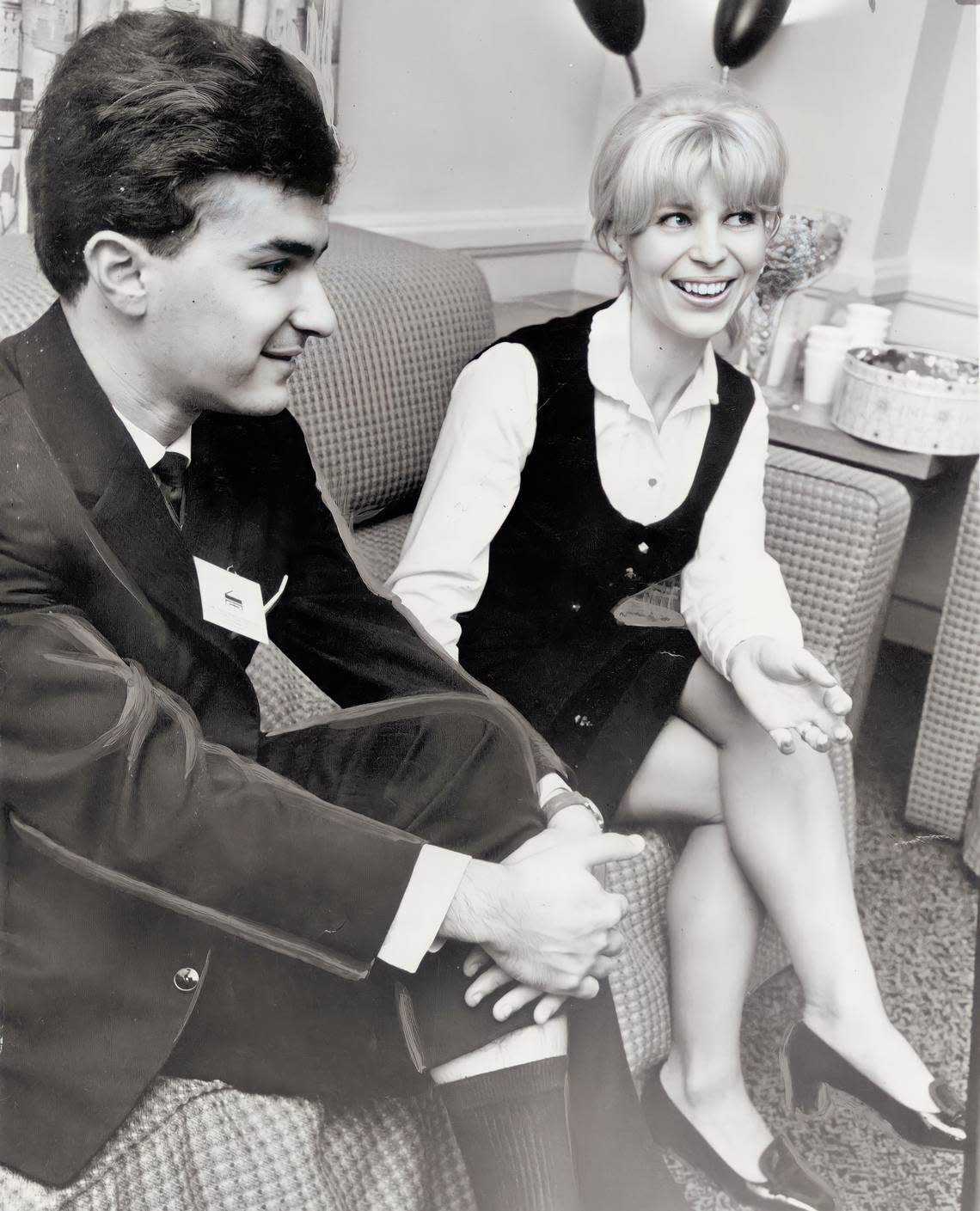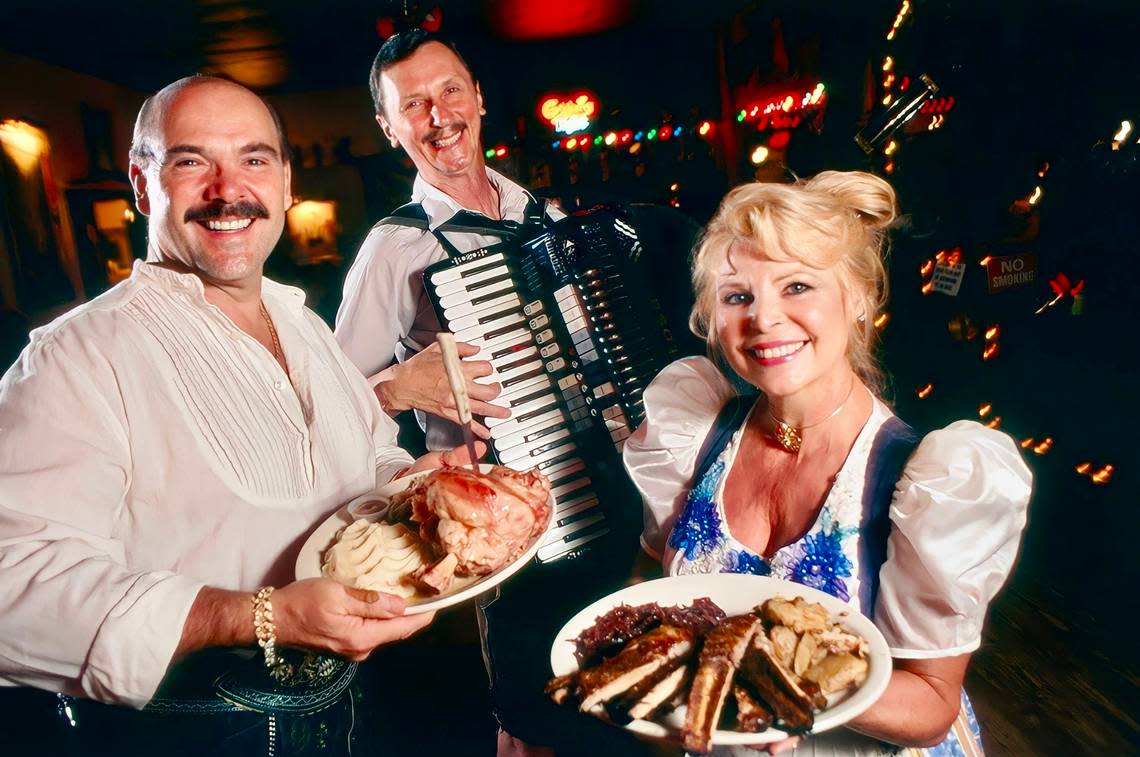‘I am so blessed’: Why Helga rushed home to play ‘Beer Barrel Polka’ at Edelweiss
Left for dead as a child in a World War II missile attack in Germany, Helga Beckman survived to come to Texas and led a Fort Worth polka band that has kept children dancing and families happy for 45 years.
So when she heard on a visit home to Wiesbaden last week that her beloved Edelweiss German Restaurant was closing, she booked a flight home to Texas in time to put on the last show.
Beckman, known for her yodeling and “musical saw” as the anchor of Edelweiss’ house band since 1978, will be back to perform at 6 p.m. Feb. 28 on the restaurant’s final night of service at its longtime location.
Edelweiss, 3801 Southwest Blvd., is closing and leaving the Benbrook Traffic Circle after serving bratwurst, schnitzel and goulash since 1967 to the tune of house bands playing “Beer Barrel Polka” and the “Chicken Dance.”

“I like to yodel and play the saw and make people happy — I love my job,” Beckman said by phone from Wiesbaden. “I am so blessed that I can make so many people happy.”
In Beckman’s case, that means returning to the stage where she fell during a Feb. 11 Valentine’s weekend show and suffered a head injury.
She laughed it off: “I got my stitches,” she said, “and I was playing two days later.”
She went ahead and left on a family trip to Wiesbaden. When restaurant owner Kenny Zeqiri said the restaurant would close, he didn’t expect her back for Tuesday’s closing show.
But Beckman changed her plans.
“You know, we Germans are famous for being stubborn,” she said. “I was not going to let that stop my music.”
She definitely did not let anything stop her during World War II.
Born Helga Stahl in Germany to parents of Romanian and Bavarian descent, she was knocked unconscious, injured and loaded onto a gurney with others presumed dead when a missile from the nearby German military base misfired into her Wiesbaden neighborhood, she said.
“See, I have been dead already,” she said.
“They put me on the death wagon, but they revived me.”
Helga Stahl not only survived, but went on to dance with the ballet in Weisbaden.
Her American connection came in 1958, according to Star-Telegram archives, when she was in Belgium leading a business group’s tour at Expo 58, the Brussels World’s Fair.
In 1959, she came to Fort Worth to go to TCU.
In a Star-Telegram clipping from the 1960s, she said she thought Texas was “nothing but uncultivated, wild country with nothing but cows” and American Indians.
She went on to marry a local man, Jim Beckman, and appear in “Die Fledermaus” with the Fort Worth Opera and in “Snow White” at Casa Manana Playhouse.

At the second Van Cliburn International Piano Competition in 1966, she interpreted for Romanian winner Radu Lupu and helped host German contestants.
At some point, she learned to play the accordion, along with a variety of musical saws.
When chef and showman Bernd Schnerzinger, originally of Hamm, Gemany, opened Edelweiss in 1967, it immediately became a must-stop for Casa Manana stars and touring celebrities such as Muhammad Ali, Dinah Shore, politicians and pageant contestants.
Schnerzinger sang and danced to German drinking songs mixed with Frank Sinatra, Wayne Newton, Willie Nelson and an occasion oompah-band version of “The Cotton-Eyed Joe.”
Edelweiss got a boost in 1974, when then-local Miller Brewing Co. started brewing and selling an American version of an import beer, Löwenbräu.
In 1978, with crowds peaking at more than 1,000 on weekends, Beckman joined Schnerzinger’s bierhalle house band playing polkas in the 450-seat restaurant and bar.
She played in Fort Worth when she wasn’t playing Wurstfest in New Braunfels or other German festivals nationwide with her band, the “Wood Choppers.”

In 2013, Schnerzinger retired from singing and dancing and sold the restaurant to Italian Inn Ridglea owner Kenny Zeqiri. Zeqiri combined the two restaurants and tried to keep the show going with singing waiters and musicians from the Casa Manana band and chorus.
“But Bernd was the heart of Edelweiss,” Beckman said.
“All of a sudden, I was alone. But I would play every night, in ice or snow, no matter what. I loved the place like I owned it.”
She groaned softly when I asked what song the crowd wants most.
“Beer Barrel Polka,” she said: “I sing and play it every time.”
And the “Chicken Dance.” And “Macarena.”
She’ll do them all again Feb. 28.
Then she’ll lock the door the final time on five decades of musical memories.
Zeqiri has said he’ll reopen elsewhere, but maybe as an Italian restaurant. The current menu includes sausages and schnitzel but also spaghetti and fettuccine.
“Kenny really tried hard,” Beckman said. “I love it so much. I can’t imagine not playing.”
It’s her last show at Edelweiss. But not her last show.
